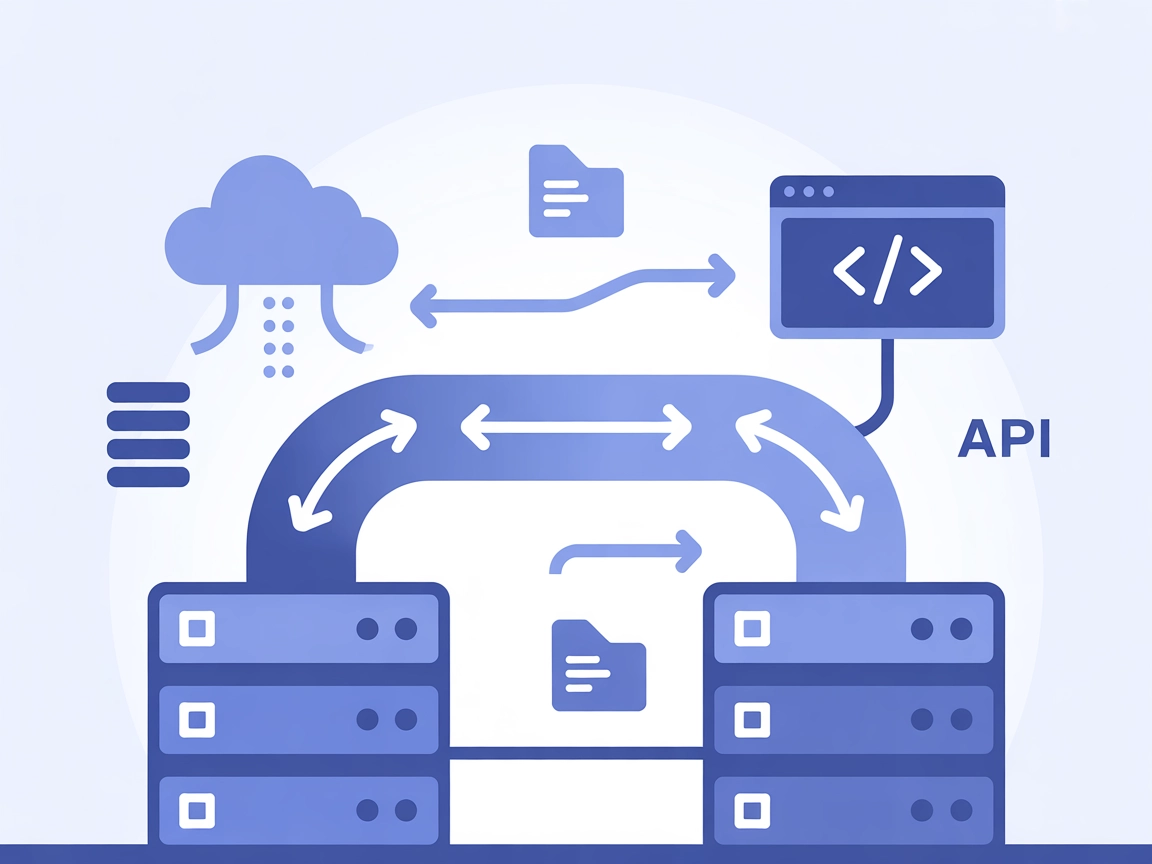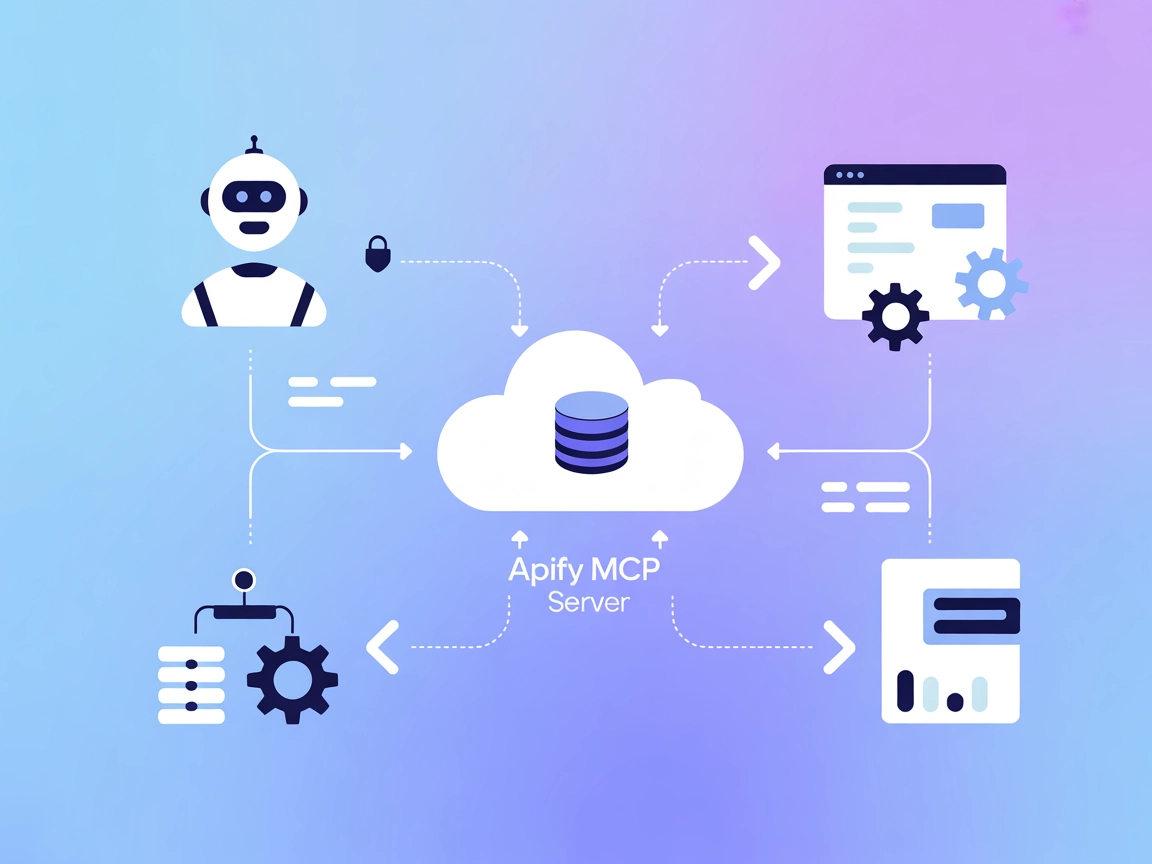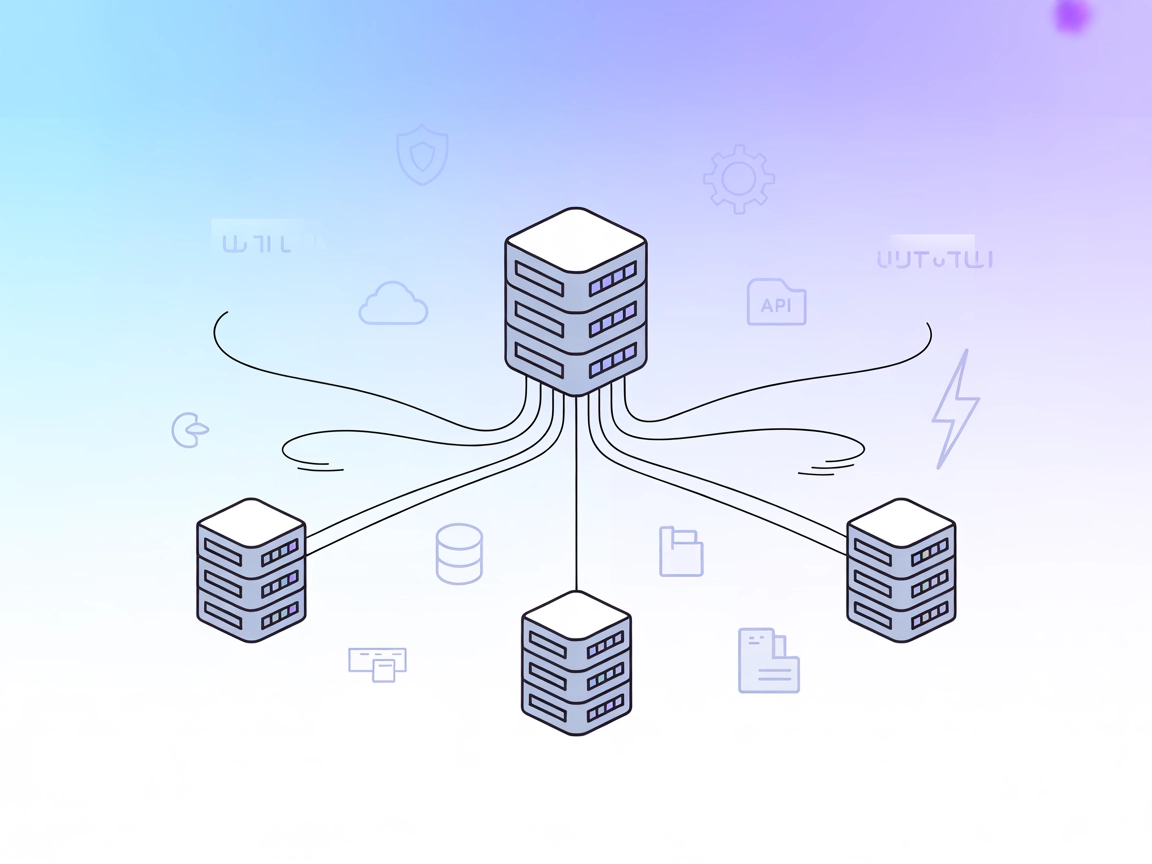
mcp-proxy MCP Server
The mcp-proxy MCP Server bridges Streamable HTTP and stdio MCP transports, enabling seamless integration between AI assistants and diverse Model Context Protoco...

Bridge legacy STDIO MCP clients to Streamable HTTP MCP servers easily, enabling modern protocol access without updating your client tools.
FlowHunt provides an additional security layer between your internal systems and AI tools, giving you granular control over which tools are accessible from your MCP servers. MCP servers hosted in our infrastructure can be seamlessly integrated with FlowHunt's chatbot as well as popular AI platforms like ChatGPT, Claude, and various AI editors.
The mcp-stdio-to-streamable-http-adapter MCP Server acts as a bridge between MCP clients that use the STDIO protocol and modern Streamable HTTP MCP Servers. As the MCP specification evolved to support a new Streamable HTTP transport, many existing clients have yet to adopt this new standard. This adapter allows developers to instantly connect any STDIO-compatible MCP client (which is most clients today) to servers that only support the Streamable HTTP protocol. By relaying communication between these two protocols, it enables seamless integration, unlocking access to advanced server-side features and making it easier for developers to test, develop, and deploy MCP Servers using the latest transport mechanisms without compatibility concerns.
No prompt templates are mentioned in the repository.
No resources are explicitly listed in the repository.
No tools are directly defined in the repository files (such as a server.py or equivalent).
Protocol Compatibility Layer
Instantly connect any STDIO MCP client to a Streamable HTTP MCP server, allowing legacy clients and tools to work with the newest MCP server implementations.
Rapid Development and Testing
Developers can build and test Streamable HTTP MCP servers without waiting for client-side updates, reducing development bottlenecks.
Multiple MCP Server Integration
Configure multiple adapters to connect to different Streamable HTTP MCP servers, useful for multi-service workflows or comparative testing.
Security and Access Control
Supports bearer token authentication via environment variables, ensuring secure communication with protected Streamable HTTP MCP servers.
Node.js and npx installed.{
"mcpServers": {
"my-saas-app-development": {
"command": "npx",
"args": [
"@pyroprompts/mcp-stdio-to-streamable-http-adapter"
],
"env": {
"URI": "http://localhost:3002/mcp",
"MCP_NAME": "local-custom-streamable-http-adapter"
}
}
}
}
Node.js and npx are installed.~/Library/Application Support/Claude/claude_desktop_config.json%APPDATA%/Claude/claude_desktop_config.json{
"mcpServers": {
"my-saas-app-development": {
"command": "npx",
"args": [
"@pyroprompts/mcp-stdio-to-streamable-http-adapter"
],
"env": {
"URI": "http://localhost:3002/mcp",
"MCP_NAME": "local-custom-streamable-http-adapter"
}
}
}
}
Node.js and npx if not already present.{
"mcpServers": {
"my-saas-app-development": {
"command": "npx",
"args": [
"@pyroprompts/mcp-stdio-to-streamable-http-adapter"
],
"env": {
"URI": "http://localhost:3002/mcp",
"MCP_NAME": "local-custom-streamable-http-adapter"
}
}
}
}
Node.js and npx are available.{
"mcpServers": {
"my-saas-app-development": {
"command": "npx",
"args": [
"@pyroprompts/mcp-stdio-to-streamable-http-adapter"
],
"env": {
"URI": "http://localhost:3002/mcp",
"MCP_NAME": "local-custom-streamable-http-adapter"
}
}
}
}
You can secure sensitive information such as bearer tokens by using environment variables in the env section:
{
"env": {
"URI": "http://localhost:3002/mcp",
"MCP_NAME": "local-custom-streamable-http-adapter",
"BEARER_TOKEN": "your-secure-token"
}
}
Using MCP in FlowHunt
To integrate MCP servers into your FlowHunt workflow, start by adding the MCP component to your flow and connecting it to your AI agent:

Click on the MCP component to open the configuration panel. In the system MCP configuration section, insert your MCP server details using this JSON format:
{
"mcp-stdio-to-streamable-http-adapter": {
"transport": "streamable_http",
"url": "https://yourmcpserver.example/pathtothemcp/url"
}
}
Once configured, the AI agent is now able to use this MCP as a tool with access to all its functions and capabilities. Remember to change "mcp-stdio-to-streamable-http-adapter" to your chosen MCP server name and replace the URL with your own MCP server endpoint.
| Section | Availability | Details/Notes |
|---|---|---|
| Overview | ✅ | Overview and function described in README |
| List of Prompts | ⛔ | No prompt templates mentioned |
| List of Resources | ⛔ | No resources listed |
| List of Tools | ⛔ | No explicit tool definitions in repo |
| Securing API Keys | ✅ | Env var BEARER_TOKEN documented |
| Sampling Support (less important in evaluation) | ⛔ | Not mentioned |
Based on the above, this MCP server is a lightweight, highly specific protocol bridge. It is well-documented for setup and purpose but does not expose resources, prompts, or tools on its own—its job is protocol adaptation.
This MCP adapter is very useful for developers needing to bridge protocol gaps, especially as the ecosystem migrates to Streamable HTTP. However, its utility is highly focused, with no additional LLM-facing tools or resources, making it less suitable for use as a standalone MCP resource server. Score: 5/10 for its niche, but essential, bridging role.
| Has a LICENSE | ✅ (MIT) |
|---|---|
| Has at least one tool | ⛔ |
| Number of Forks | 1 |
| Number of Stars | 6 |
It acts as a compatibility layer, allowing STDIO-based MCP clients to communicate with servers using the newer Streamable HTTP MCP protocol. This bridge removes the need to update client applications to the new protocol.
Use the BEARER_TOKEN environment variable in the configuration to pass your authentication token securely to the MCP server.
Yes, you can run multiple adapter instances, each configured to communicate with a different Streamable HTTP MCP server, supporting multi-service workflows.
No, this adapter’s sole purpose is protocol translation. It does not expose prompt templates or resources to LLMs directly.
Yes, it is released under the MIT License.
Use the mcp-stdio-to-streamable-http-adapter to unlock Streamable HTTP features for existing STDIO clients. No client updates required—start integrating today!

The mcp-proxy MCP Server bridges Streamable HTTP and stdio MCP transports, enabling seamless integration between AI assistants and diverse Model Context Protoco...

The Apify MCP Server connects AI assistants with the Apify platform, enabling seamless automation, data extraction, and workflow orchestration via standardized ...

The MCP Proxy Server aggregates multiple MCP resource servers into a single HTTP server, streamlining connections for AI assistants and developers. It enables u...
Cookie Consent
We use cookies to enhance your browsing experience and analyze our traffic. See our privacy policy.